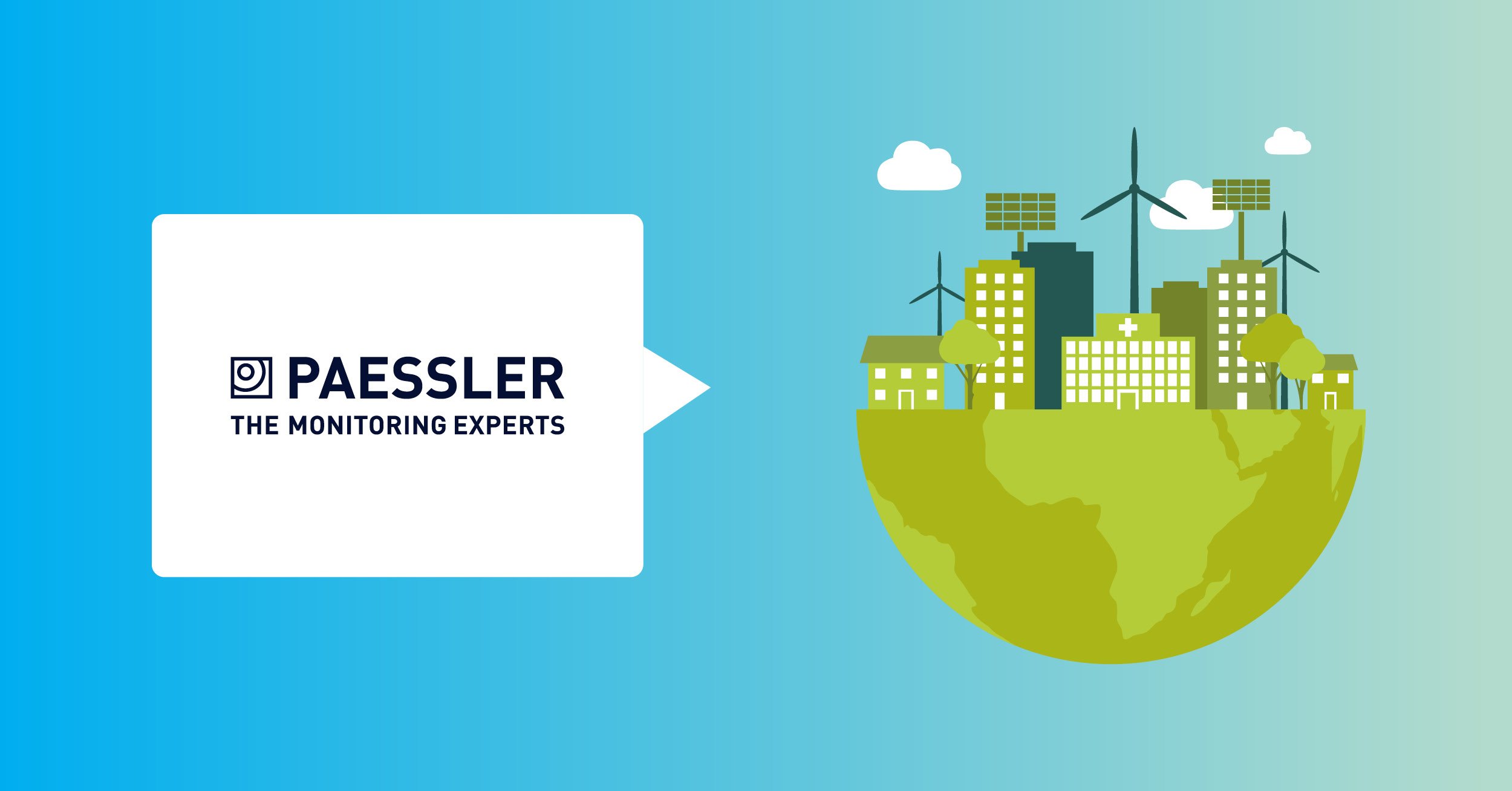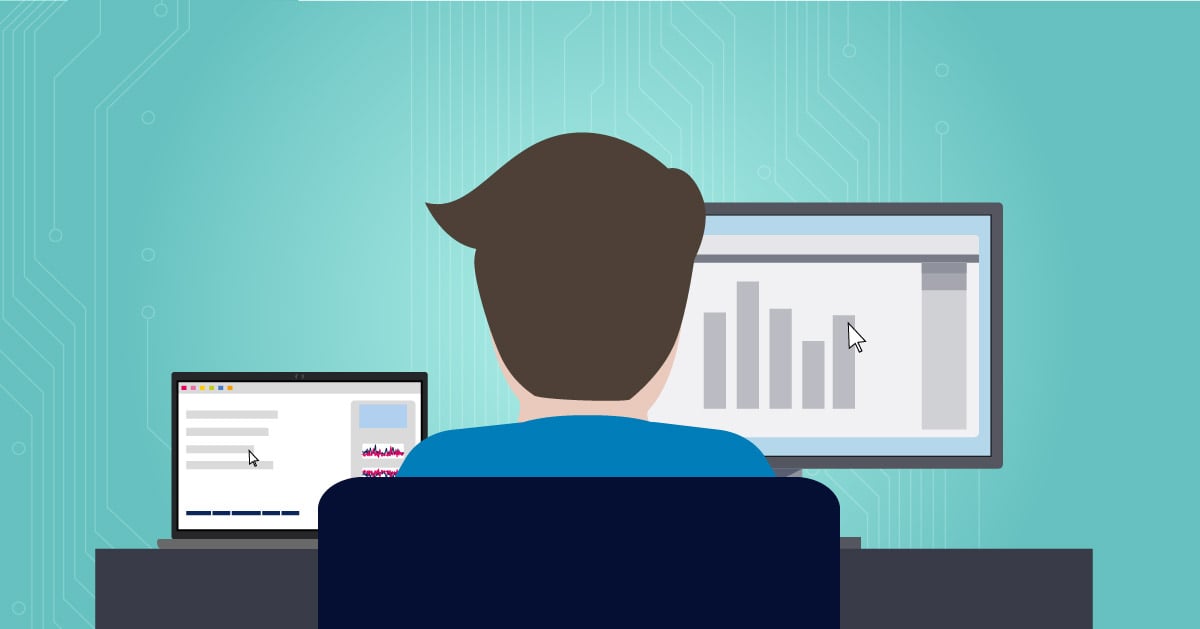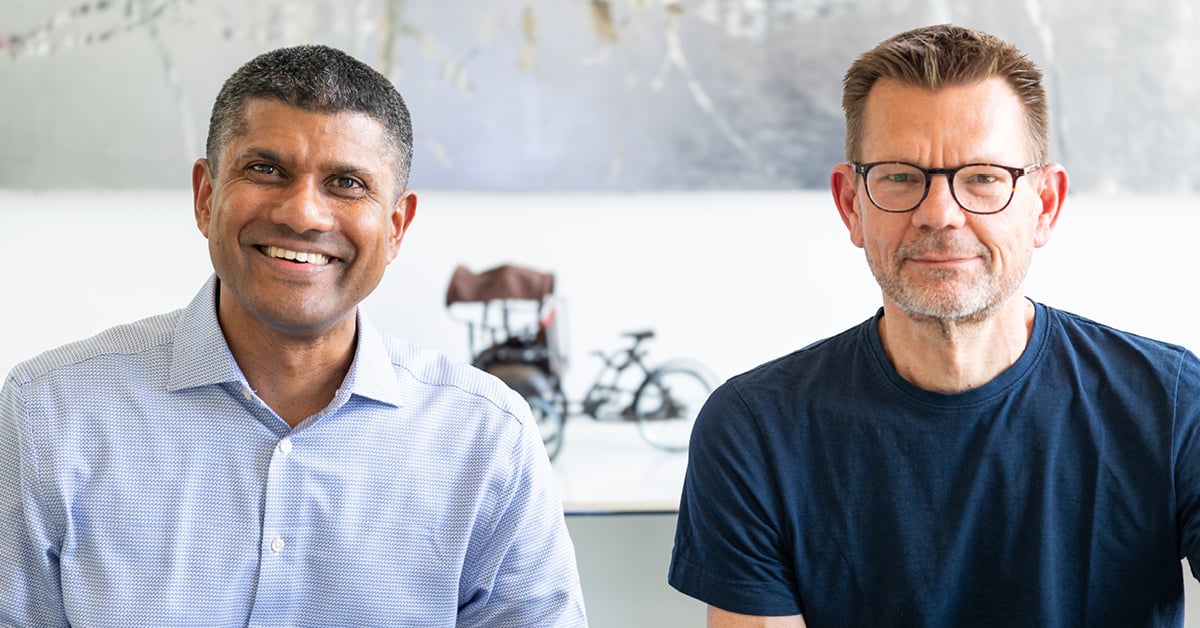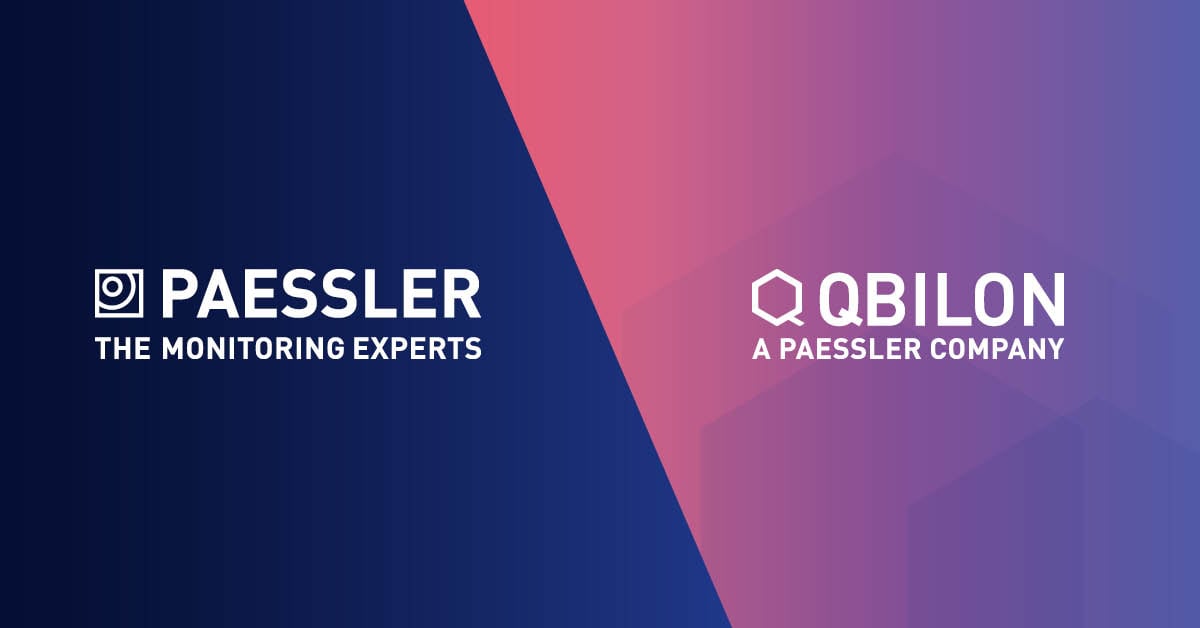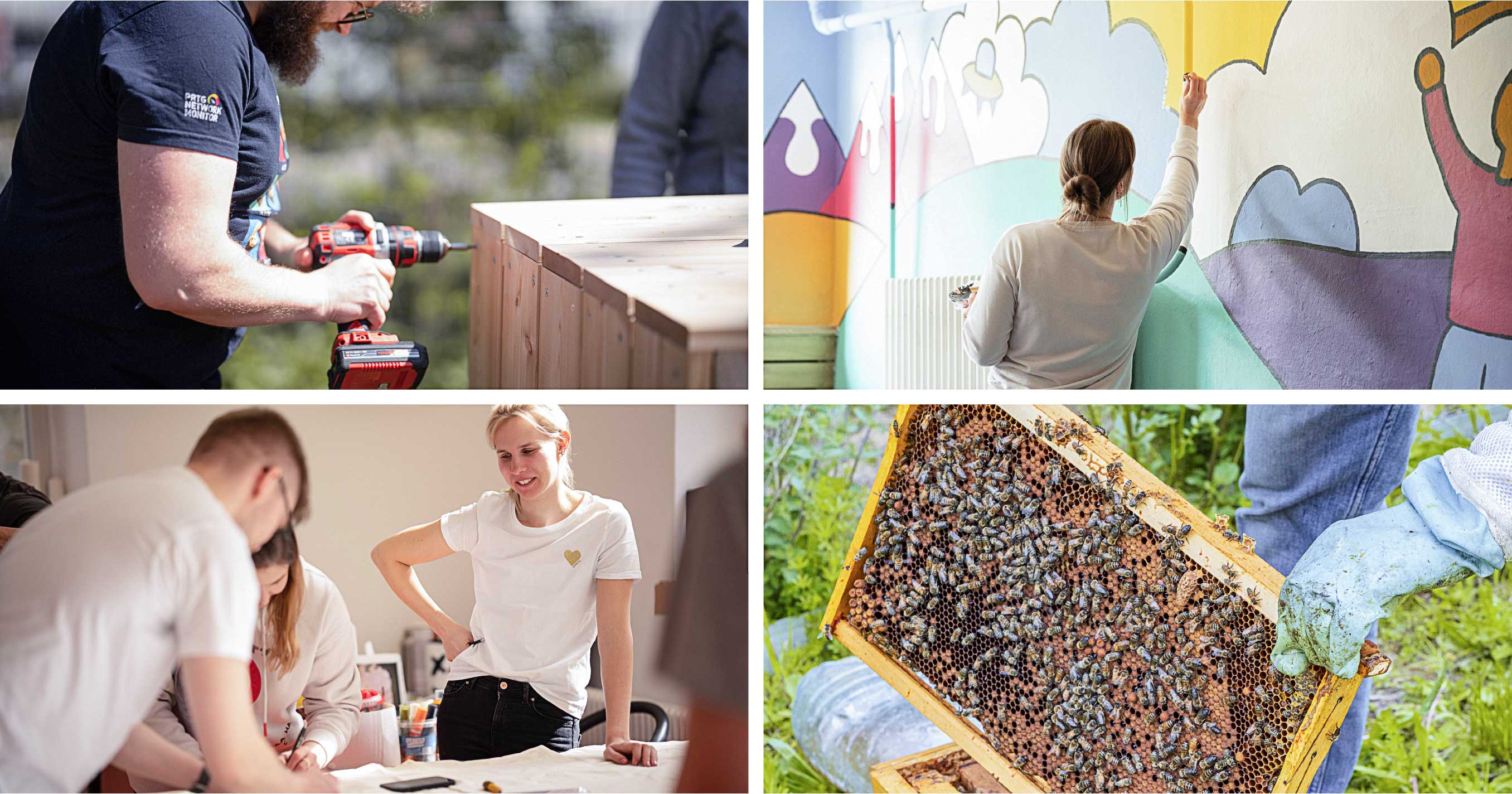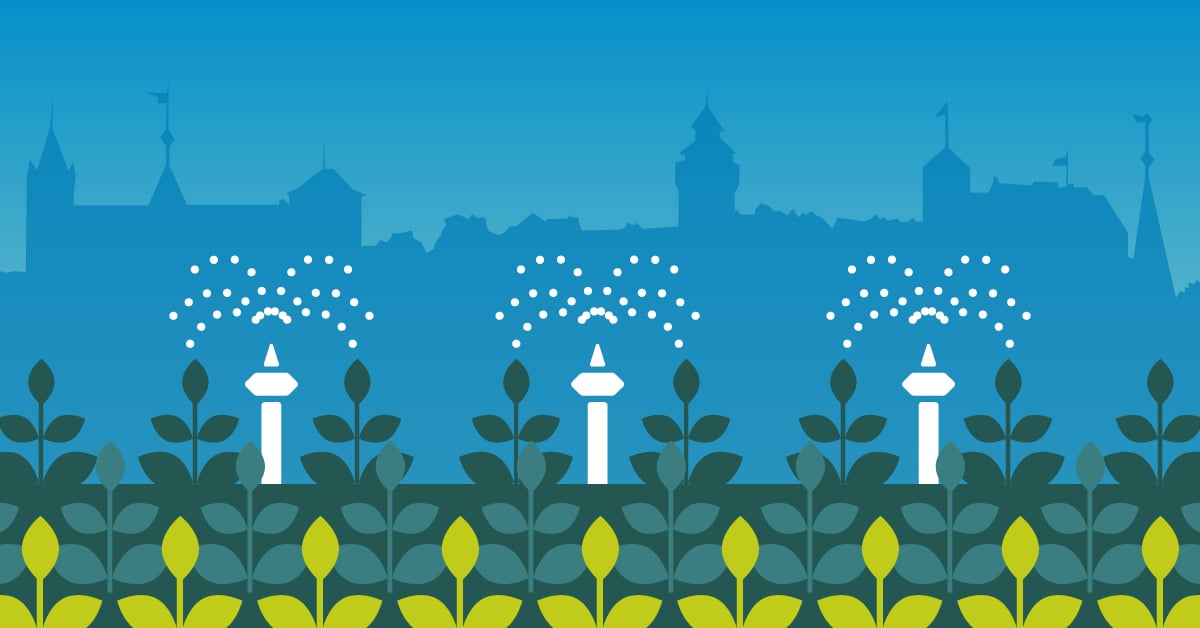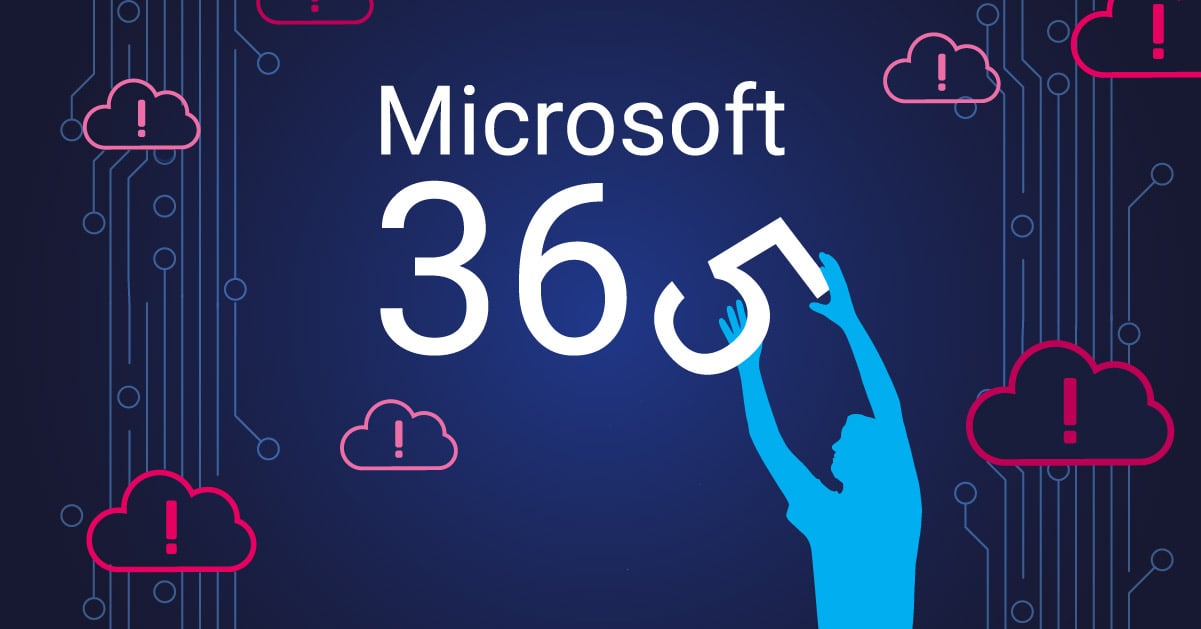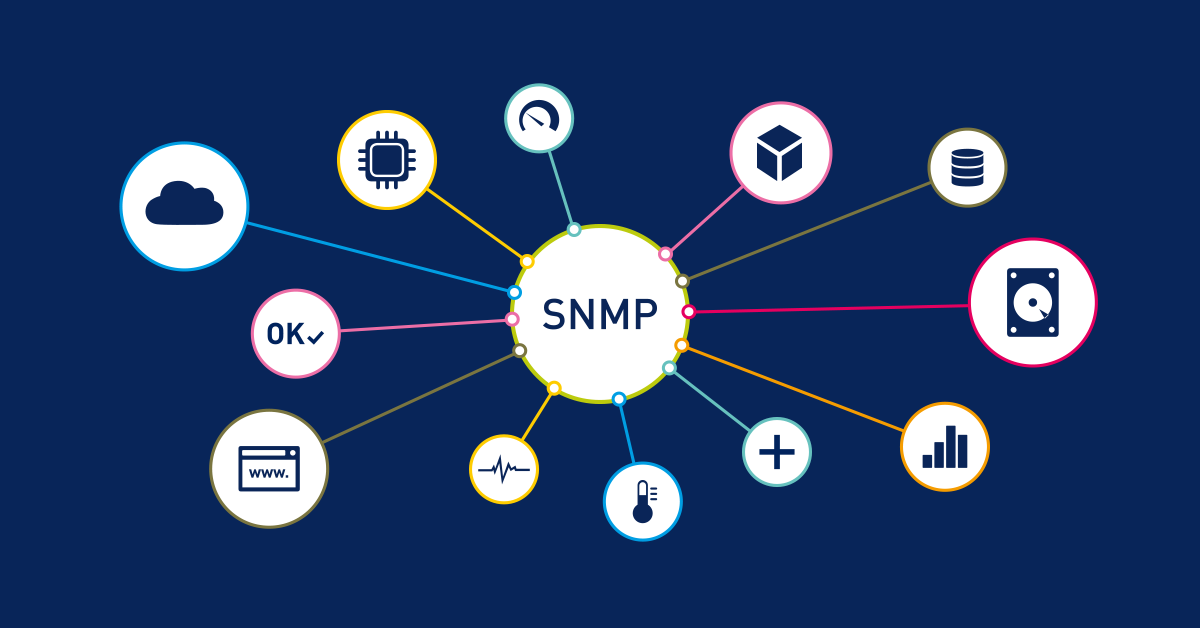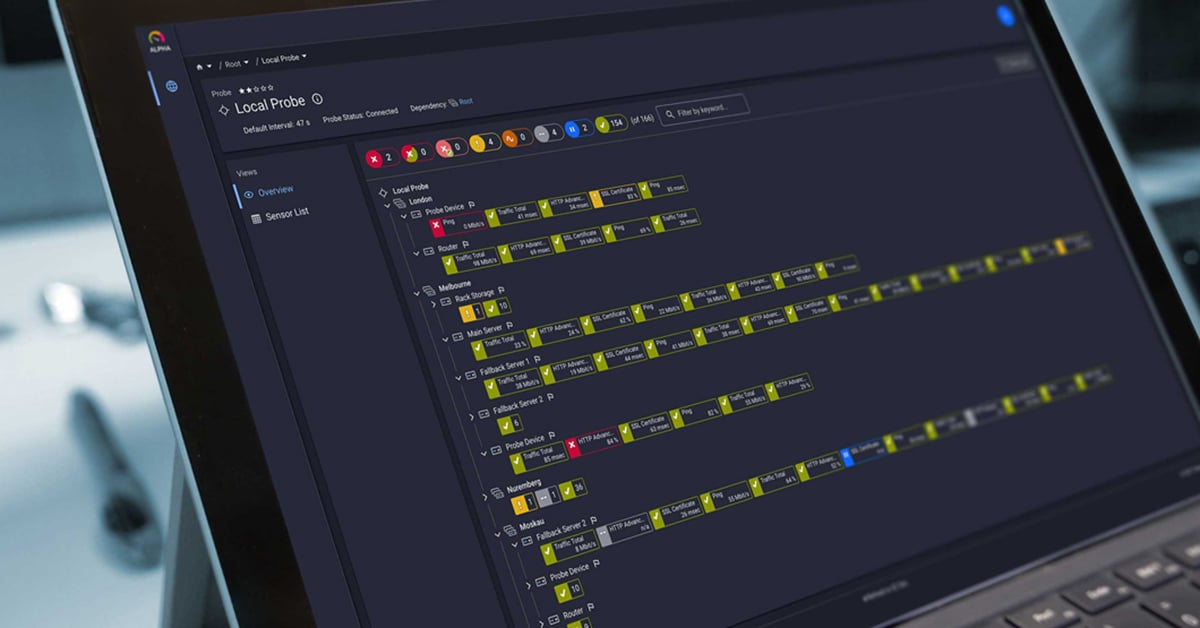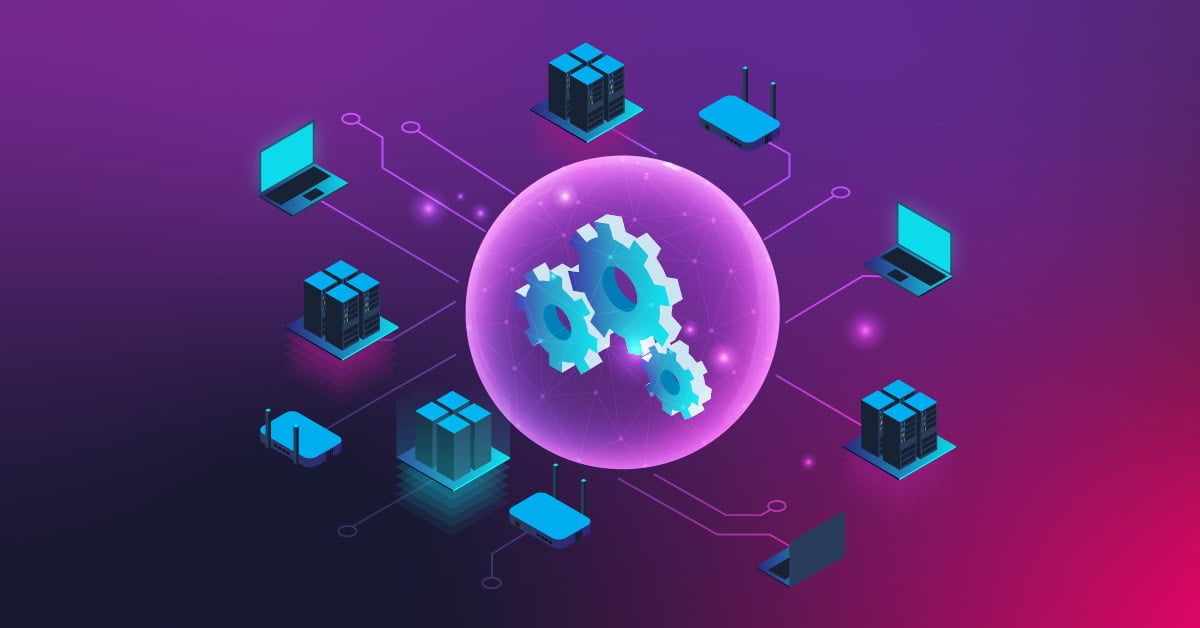We at Paessler believe monitoring plays a vital part in reducing humankind's consumption of resources. Monitoring data helps our customers save resources, from optimizing their IT, OT and IoT infrastructures, to reducing energy consumption or emissions. This topic defines the "why" in "why we do our everyday business", and in July 2020, we made it our official company purpose (here is the official site for all the correlating information).
This is the first article on our blog that explains how this company purpose came to life and how it influences our vision of where we at Paessler are headed.
A timeline that is far from the end
Since 1997, when Dirk Paessler founded our company, we have combined our in-depth monitoring knowledge with an innovative spirit. The subject of sustainability has been on our minds for quite a while. It was important for us to start not just with theoretical considerations, but with practical steps, which at the same time gave us the possibility to use our core monitoring competence and to deepen it in those particular fields:
2018
- In 2018 we installed our first PV plant on our HQ's roof. We were excited and naturally started monitoring it right away. It now not only saves us one third of our annual energy bill, but gives us great new insights. You can find two articles with all the relevant details here:
👉 One flew over the Paessler's nest
👉 You wouldn't believe what we've learned in one year after installing a PV system on our roof (Please excuse the clickbaity title. I'm ashamed of myself) - Also since 2018, CO₂ compensation has been applied to all company business flights, which was the initial milestone on the road to becoming a CO₂ neutral company (read more about the term "CO₂ neutral" below). CO₂ compensation is, by the way, a great way to start climate awareness in a company, because it encourages all teams to distinguish between truly useful and perhaps dispensable trips, especially flights.
2019
- One year later, the Climate Reality Project took place at our HQ in Nuremberg, an internal event organized by Paessler employees in their free time to educate colleagues and their families about the climate crisis and its impacts. Patrick (not the author, but our video guy) gave a very emotional speech on that day, and I would want him to describe his overall feelings about the event:
We planned for weeks how we could activate people, inform them — and also entertain them despite the serious topic. In the end, it was not only colleagues who came, but also some of their family members. The oldest participant was probably around 80 years old, and the youngest were the children of some colleagues. Although many of the participants did not know each other, they had very open conversations, some of which included acknowledgment of what they could do better in their daily lives in terms of resource consumption. During the event, we all thought about what each of us could do for the climate. Some of us actually put this into practice, such as adopting a vegetarian diet or no longer driving to work.
- Shortly thereafter, we introduced the possibility to charge electric cars by deploying E-charging stations right outside our HQ. This is a useful option that employees appreciate and frequently use. Of course, in Germany, as in most European countries, electric cars are not yet in the majority. This will, however, change in the foreseeable future. In addition, e-bikes and e-scooters can be charged at any power outlet in our HQ, obviously also free of charge.
2020
- Since 2020, we are completely CO₂ neutral and couldn't be happier about it. Furthermore, it is our declared goal to become climate positive in the near future — probably around 2025.
iDon't know the difference between "climate neutral" and "climate positive"? No worries, it's not so tricky!
🌎 The term climate neutral (or CO₂ neutral, or carbon neutral) refers in purely mathematical terms to "emitting no CO₂". This usually works as follows: A company calculates its emissions, buys so-called emission certificates in the number of its own emissions, which are then set aside. The certificates have been obtained by someone who has bound or saved CO₂. So let's say you take a business-flight from New York City to Munich. Your piece of that flight emits about four metric tonnes of CO₂. For that you pay about 70 € to a nonprofit which then funds projects in developing countries to cut down emissions there. So basically you pay people to emit less CO₂. This is not perfect, because you still are adding greenhouse gasses to the atmosphere. But it's better than flying without offsetting it.
🌏 As the term climate positive suggests, it essentially means offsetting more CO₂ than one has caused. Behind this lies the awareness that the goals of the Paris Climate Agreement, which seeks to limit global warming to 1.5° compared to pre-industrial times, can only be achieved by saving CO₂ at a significant level.
- We continue to try provide answers to the challenges of the current times. Of course, like virtually every company, the corona pandemic, starting in spring 2020, has confronted us with some fundamental realignments. And we are trying to follow this path as best we can in line with our beliefs. Our company purpose became official in July 2020, around the time we fundamentally changed our working models for the future: we now offer every employee a comprehensive remote work model.
2021 - 2030
- We further expanded from IT into the OT and IoT spaces and, very recently, even launched a whole new monitoring product for the housing industry. Everything that we've learned since starting this journey has proven to be extremely helpful for the development of new features and even products.
- This timeline and our path will continue to evolve. What is already certain, however: From 2022 on, we as a company will no longer purchase natural gas, but instead rely entirely on biogas, a mixture of gases produced by the breakdown of organic matter in the absence of oxygen.
- In the future, together with our partners and customers, we will increasingly address the urgent issue of resource efficiency, the sustainable, intelligent use of resources, and which characteristics monitoring solutions must have so that all this evaluation happens behind the scenes and with no further effort.
- Our founder Dirk is no longer active in the day-to-day business, but he was the core inspiration behind our company purpose and supports us wherever possible in the execution. Climate change is a topic that has moved Dirk strongly for many years. For those who would like to inform themselves broadly, we recommend Dirk's blog in German and English.
You made it this far? Then consider getting in touch with us!
Our products empower our customers to monitor everything, and thus already help them optimize their resources. Some of these customers have put together use cases. You can find them here as well as in four blog articles that will be published on our blog soon. If reading this article or these use cases makes you think "Hey, my company already uses monitoring to save resources too!", please get in touch with us by commenting or clicking on the banner below. 👇
 Published by
Published by 